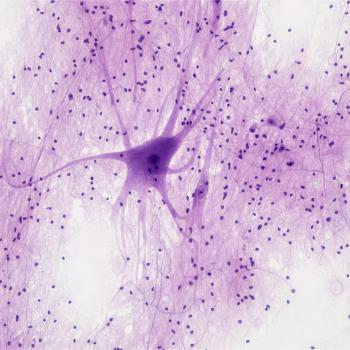Few revelations about the American government in my lifetime have been as horrifying as the evidence that federal agencies were involved in 2009 and 2010 in pushing guns to the Mexican drug cartels. Reportedly, the U.S. government colluded in the sale of more than 2,000 guns to "cutout" purchasers who then provided the guns to criminals in Mexico. Licensed American gun dealers were required by federal agents to cooperate in this effort, called Project Gunrunner and Operation Fast & Furious.
It came to the public's attention after one of the guns was implicated in the murder of a U.S. Border Patrol agent in December 2010. Two American law-enforcement officers are now reported to have been killed with Fast & Furious weapons. An even more appalling figure is the 150 or more Mexican nationals who may have been killed with guns "walked" by the operation.
What federal officials knew, and when they knew it, is a matter of raging dispute. Also disputed are the merits of the operation's purported purpose: to follow the guns to the cartel kingpins. But there is no dispute about the fact that agencies of the U.S. federal government arranged for guns to be sold to criminals in Mexico. And regardless of why this was done, the judgment of common sense is inescapable: it was a terrible idea and showed a breathtaking contempt for human life.
Most discussions of Project Gunrunner revolve around culpability and the question of gun rights versus gun control. But it is important to take a step back from the relatively narrow perspectives of policy and prosecutio, and recognize the "gunwalking" program as a particular temptation of government: to behave as if well-meaning experiments justify consequences to human lives.
Governments are especially prone to this temptation in our modern technological era. Our ability to observe phenomena more comprehensively than ever before—to collect data, analyze it, and draw conclusions about macro-level patterns in our world—has induced in us a sense that we can also affect the things we observe by acting on a like principle of macro-analysis and "macro" solutions.
There was a time when governments literally had no means of knowing many of the things we take it for granted that they know today. As little as 100 years ago, for example, the U.S. government had very little specific knowledge about the personal incomes of Americans. The idea of knowing what percentage of the population is obese was laughable only 70 years ago—as was the idea of government forming an actionable opinion about the state of women's self-esteem, or having credible knowledge of exactly what percentage of guns retrieved from crimes in Mexico came from the United States. Government could not appoint itself to tinker with aspects of life it had no way of knowing much about.
But with the expansion of our data-collection capability has come a modern sense that we can diagnose and "treat" our world, as if its ills—even the moral, human ones—are analogous to diseases or malfunctioning systems. Western-style governments, which have long disavowed any official interest in the spiritual lives of their peoples, are particularly susceptible to this illusion. More and more, they impose mandates and prohibitions that are intended to produce changes in the statistical indices of social phenomena—changes, that is, in percentages and prevalence, bar graphs and trend lines. The potential impact of these measures on the moral condition of the individual is dismissed or argued away.
This false sense of competence—this idea that acting collectively, based on theory and analysis, can yield improvements in the "social organism"—is something government is peculiarly suited to adopt. The individual citizen can only dream of experimenting with humankind, but government wields the armed power of the state. In its worst incarnations, this pattern has produced the ghastly excesses of Nazi Germany and the Japanese occupation force in China in the 1930s and 1940s. But literal biological experimentation is not the only way in which governments have caused collateral damage in the pursuit of hypotheses.
The postulate that invests government policy with macro-level competence always has a good reason for disregarding the consequences to the individual. Advocates of a welfare-dependent society propose to alter for the better the statistical snapshot of the people's economic condition. Advocates for affirmative-action programs propose to increase the percentage of racial and ethnic minorities in a host of social categories, from business leadership to home ownership. Those who planned and executed Operation Fast & Furious reportedly proposed to use marked guns to locate important criminals—a tactical rather than a statistical prism for viewing the problem, but one equally focused on a macro-level operational utility rather than moral concern for human individuals.





